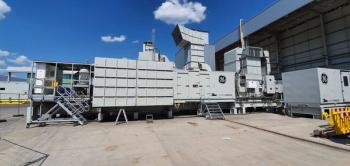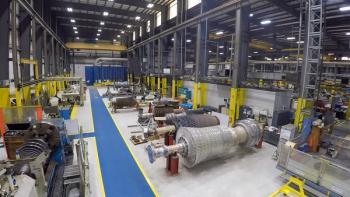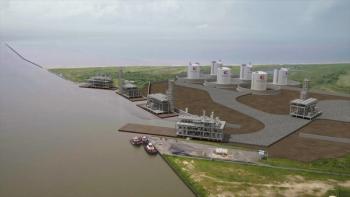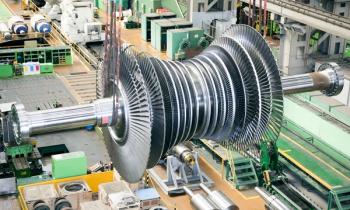
Turbo show in the Middle East: Today and Tomorrow
Qatar, one of the world’s leading suppliers of LNG, is home to some of the largest operating corporate chains in the Middle East, and possibly the world, proclaimed His Excellency Dr. Mohammed bin Saleh Al Sada, Qatar’s Minister of Energy and Industry, at the third Middle East Turbomachinery Symposium (METS), which opened February 15th in Doha, Qatar. This symposium comes at a time when the entire industry is alert to the role of technology in making the energy sector more reliable, more efficient and safer, he said.
Almost 98 percent of the world’s electricity is generated by gas, steam and hydro turbines, added Al Sada. Some 67 percent is generated by the conversion of coal, gas, oil and nuclear fuels, amounting to one-third of the world’s primary energy. “With such pivotal importance in the energy industry, one can comfortably say that turbines are at the center of enabling new energy technologies.”
The opening ceremony also featured speeches from Dr. Dara Childs, Director of the Turbomachinery Laboratory at Texas A&M University, and Simon Younger, VP and Joint Interest Manager for ExxonMobil Qatar.
Game-changing examples of advancements in technology can be found at METS, said Younger. “In Qatar, where the size and scale of complex turbomachinery is unrivaled, a highly skilled workforce is imperative in making events like this all the more important. There’s always room for advancement in how we manage and maintain these assets.”
METS delegates chose to attend a combination of 8 discussion groups, 12 tutorials, 12 lectures and 18 case studies on various topics such as LNG, wet gas, vibration, surge and gas turbines.
Launching ATPS
Dr. Luis San Andrés, Mast Childs Chair Professor at Texas A&M’s Turbomachinery Laboratory, was also at METS. San Andrés chairs the Technical Advisory Committee organizing the Asia Turbomachinery & Pump Symposia (ATPS) premiering on February 22 - 25, 2016, at the Marina Bay Sands Hotel and Convention Center in Singapore.
“This is the century for Asia,” he explained. Asian economies (Singapore, Thailand, Malaysia, China) are growing very fast. China’s GDP, for example, has surpassed Japan’s and is predicted to exceed the U.S.’s in 2018 or earlier, according to The Economist. “We want to be where the industrial expansion is, where there’s urban growth, where people need power, water and manufacturing, and then satisfy their growing need for technical education.”
Singapore is a prosperous country, he added. Its GDP per capita in 2013 is about $55,000, compared with the U.S.’s, which is about $53,000. “The Singaporeans also consider themselves a ‘knowledge-based’ society; they want to manufacture high-tech equipment and provide state-of-the art services. The fifty-year old nation’s educational system is one of the world’s best. Moreover, Singapore has one of the largest ports in the world and three refineries, one of which is ExxonMobil’s ― the world’s second largest refinery.
The Turbomachinery Symposium advisory committee has been urging the launch of the ATPS for the past two years. And many of the Laboratory’s research contracts are now from Asia. Asians need machinery; they need development and the best technical training. We will provide technology transfer, professional development and the opportunity for partnerships.
The structure of ATPS will be the same as the Houston Turbomachinery Symposium, with lectures, tutorials, case studies and short courses.
Newsletter
Power your knowledge with the latest in turbine technology, engineering advances, and energy solutions—subscribe to Turbomachinery International today.




